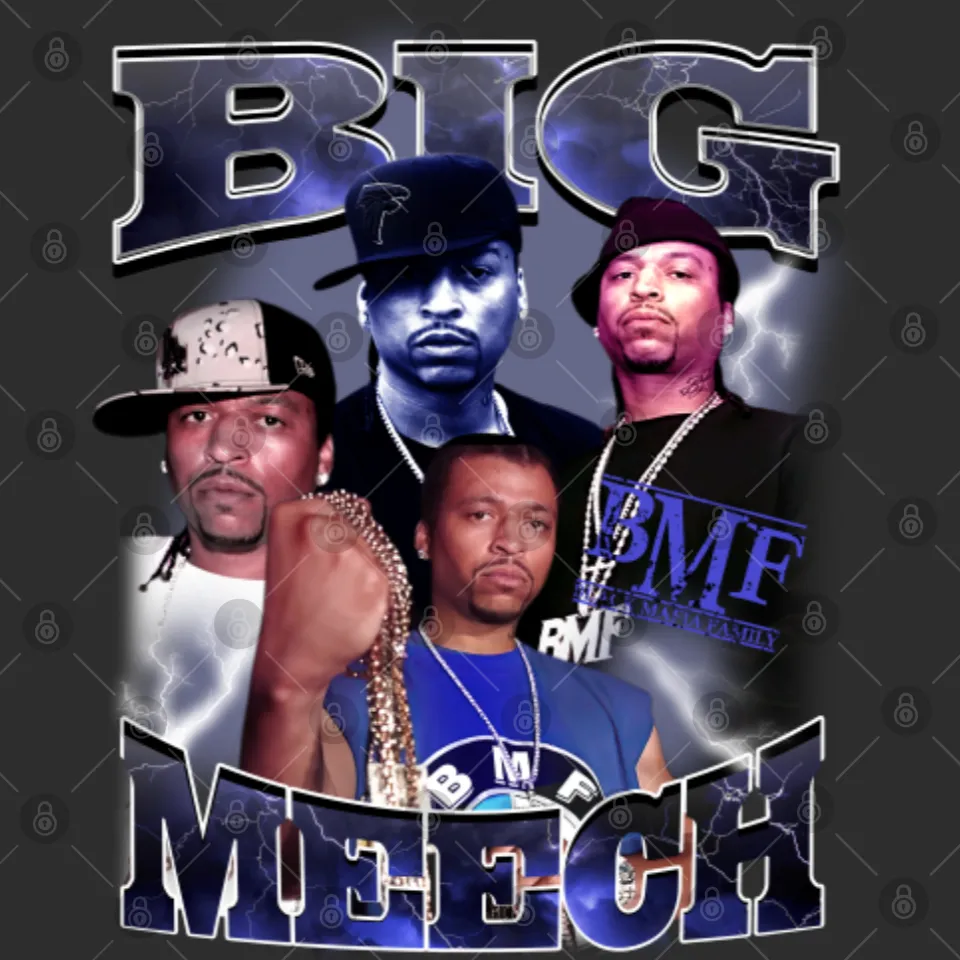Big Meech, born Demetrius Edward Flenory, is a well-known figure in the world of organized crime, particularly within the hip-hop community. He is best recognized as the founder of the Black Mafia Family (BMF), a powerful drug trafficking and money laundering organization that operated in the United States from the late 1980s until its collapse in 2005. His life story has become the subject of fascination, particularly after the release of the STARZ series BMF, which chronicles the rise and fall of the notorious crime organization. Here is a detailed and structured exploration of who Big Meech is in real life, including his early life, career in the drug trade, legal troubles, and cultural impact.
Early Life and Background
Big Meech was born on June 21, 1968, in Detroit, Michigan, where he grew up in a financially struggling family. Alongside his younger brother Terry Flenory (nicknamed “Southwest T”), Demetrius turned to illegal activities as a means to escape poverty. By the late 1980s, they had entered the drug trade, initially dealing small quantities of cocaine in the streets of Detroit. Over time, their operations expanded rapidly, laying the foundation for what would become the Black Mafia Family.
The Rise of the Black Mafia Family (BMF)
The Black Mafia Family began to take shape in the early 1990s, with Big Meech and his brother Terry at the helm. The organization eventually grew into one of the most prominent and lucrative drug trafficking operations in the United States, dealing cocaine across numerous cities, including Atlanta, Los Angeles, Miami, and St. Louis.
At its peak, BMF was reported to be handling the distribution of hundreds of kilograms of cocaine per month, generating tens of millions of dollars. The organization was also involved in money laundering, using legitimate businesses to hide illicit earnings. In addition to their drug empire, Big Meech and Terry invested in hip-hop culture, founding BMF Entertainment, a music promotion company that aimed to legitimize their wealth and integrate them into the mainstream music industry.
BMF and Hip-Hop Culture
Big Meech’s influence extended beyond the drug world and into hip-hop, where BMF became synonymous with the extravagant lifestyle often glorified in rap music. BMF Entertainment promoted artists like Young Jeezy, and Big Meech himself became an iconic figure referenced in numerous rap lyrics. The lavish lifestyle of Big Meech and his crew—marked by luxury cars, jewelry, and high-end parties—added to his notoriety.
His connection to the hip-hop industry helped solidify his reputation as a larger-than-life figure, contributing to the legend surrounding BMF. While BMF Entertainment aimed to serve as a legitimate business front, it was also seen as a means of laundering money derived from drug trafficking.
The Fall of BMF
The downfall of BMF began in the early 2000s when the Drug Enforcement Administration (DEA) started a multi-year investigation into the organization. The authorities uncovered extensive evidence of drug trafficking, wiretaps, and financial records, which eventually led to the arrest of Big Meech, Terry, and numerous other BMF members in 2005.
In 2008, Demetrius “Big Meech” Flenory and his brother were convicted of running a continuing criminal enterprise and sentenced to 30 years in federal prison. They were found guilty of overseeing a vast drug network that distributed thousands of kilograms of cocaine across the U.S. In prison, Big Meech maintained his innocence, insisting that BMF was primarily a music promotion company and that he had distanced himself from illegal activities.
Life in Prison and Sentence Reduction
While in prison, Big Meech continued to have a significant influence on pop culture, especially through the music industry, where his story has been referenced by various artists like Rick Ross, Future, and 50 Cent. The Free Big Meech campaign gained traction, with supporters advocating for his early release.
In 2020, Big Meech’s sentence was reduced by three years after he successfully petitioned for a reduction under changes to federal sentencing guidelines. His new release date was set for 2028. This adjustment came as a partial acknowledgment of his good behavior in prison and efforts to mentor younger inmates.
The Cultural Impact and Legacy of Big Meech
Big Meech’s life has had a profound impact on popular culture, particularly in the world of hip-hop. The STARZ series BMF, produced by rapper 50 Cent, has brought his story to a new generation, dramatizing the rise and fall of the Black Mafia Family. The show offers a fictionalized account of the Flenory brothers’ journey from Detroit to becoming two of the most influential drug lords in American history.
His legacy continues to be a subject of discussion and debate, often illustrating the intersection of crime, music, and culture in America. For some, he is seen as a symbol of ambition and resilience, having built an empire from humble beginnings. For others, he represents the dangers of the drug trade and its impact on communities.
Conclusion
Big Meech, or Demetrius Flenory, is a real-life figure whose life story captures the complexities of the American dream’s darker side. As the founder of the Black Mafia Family, he built one of the most notorious drug trafficking operations in the U.S., while also influencing hip-hop culture in a significant way. Despite his criminal past, his legacy lives on, both through the ongoing fascination with BMF’s story and the cultural impact that extends beyond the streets and into music and television.
While Big Meech remains incarcerated, his influence continues to resonate, ensuring that the story of BMF will not be forgotten. Whether viewed as a cautionary tale or an embodiment of hustle and ambition, his life offers insights into the intricate connections between crime, business, and culture in modern America.



